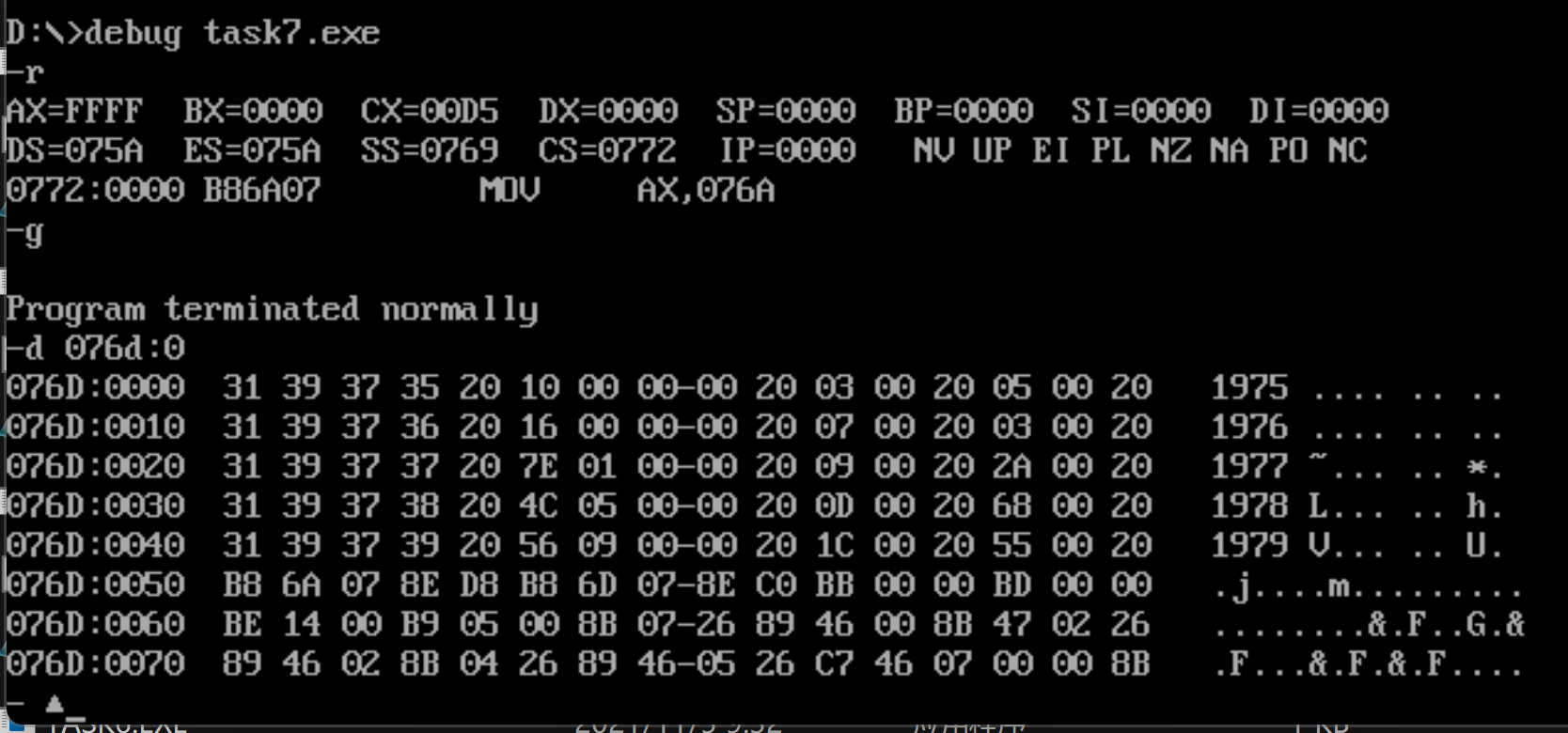Experiment task 1:
Task 1-1:
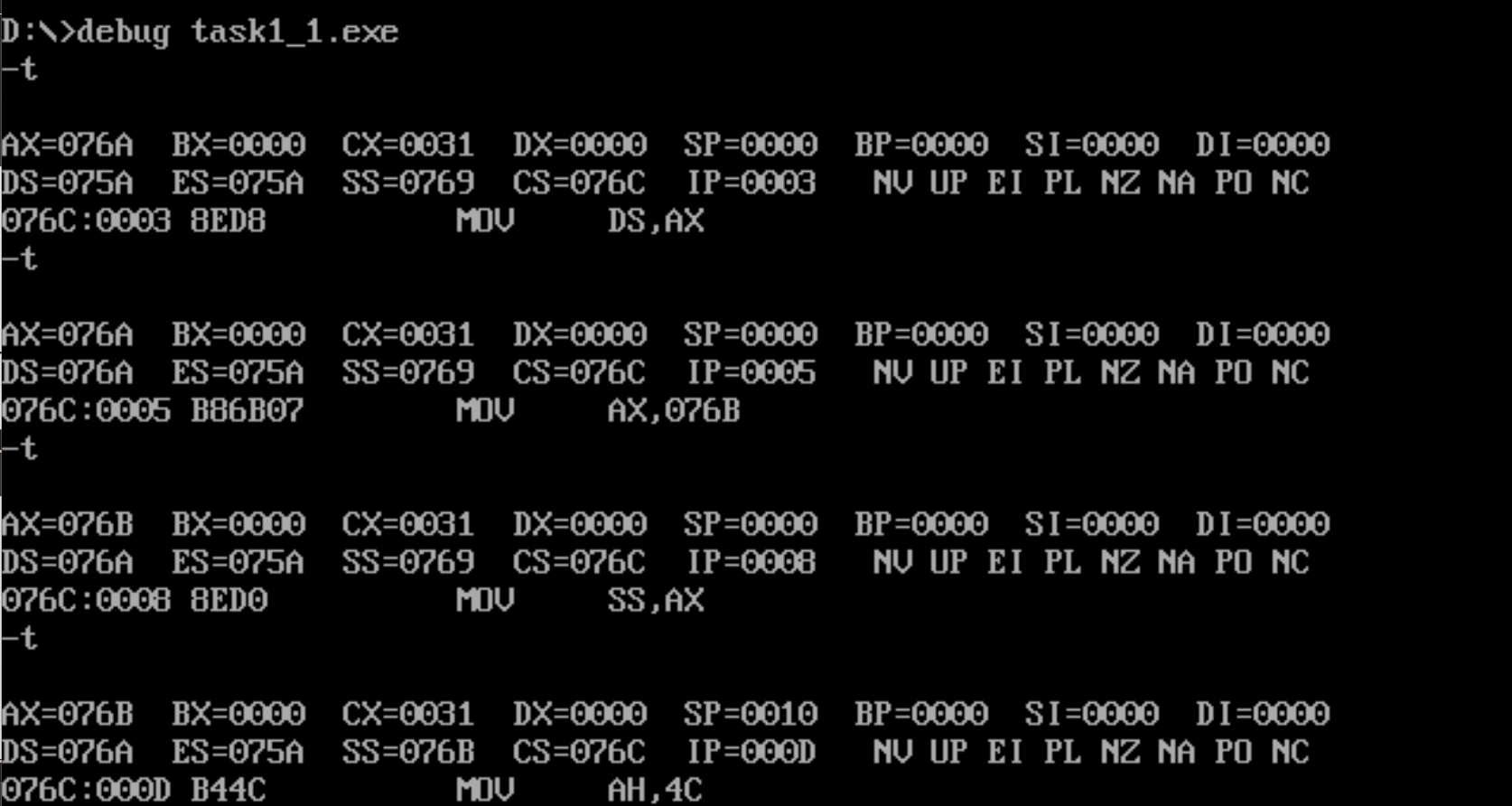
In debug, execute until the end of line17 and before line19. Record this time: register (DS) = 076A, register (SS) =076B, Register (CS) =076C. (memory is allocated at 16 bytes at a time.)
Assuming that the segment address of the code segment is X after the program is loaded, the segment address of the data segment is x-0002h and the segment address of the stack is x-0001h.
Task 1-2:
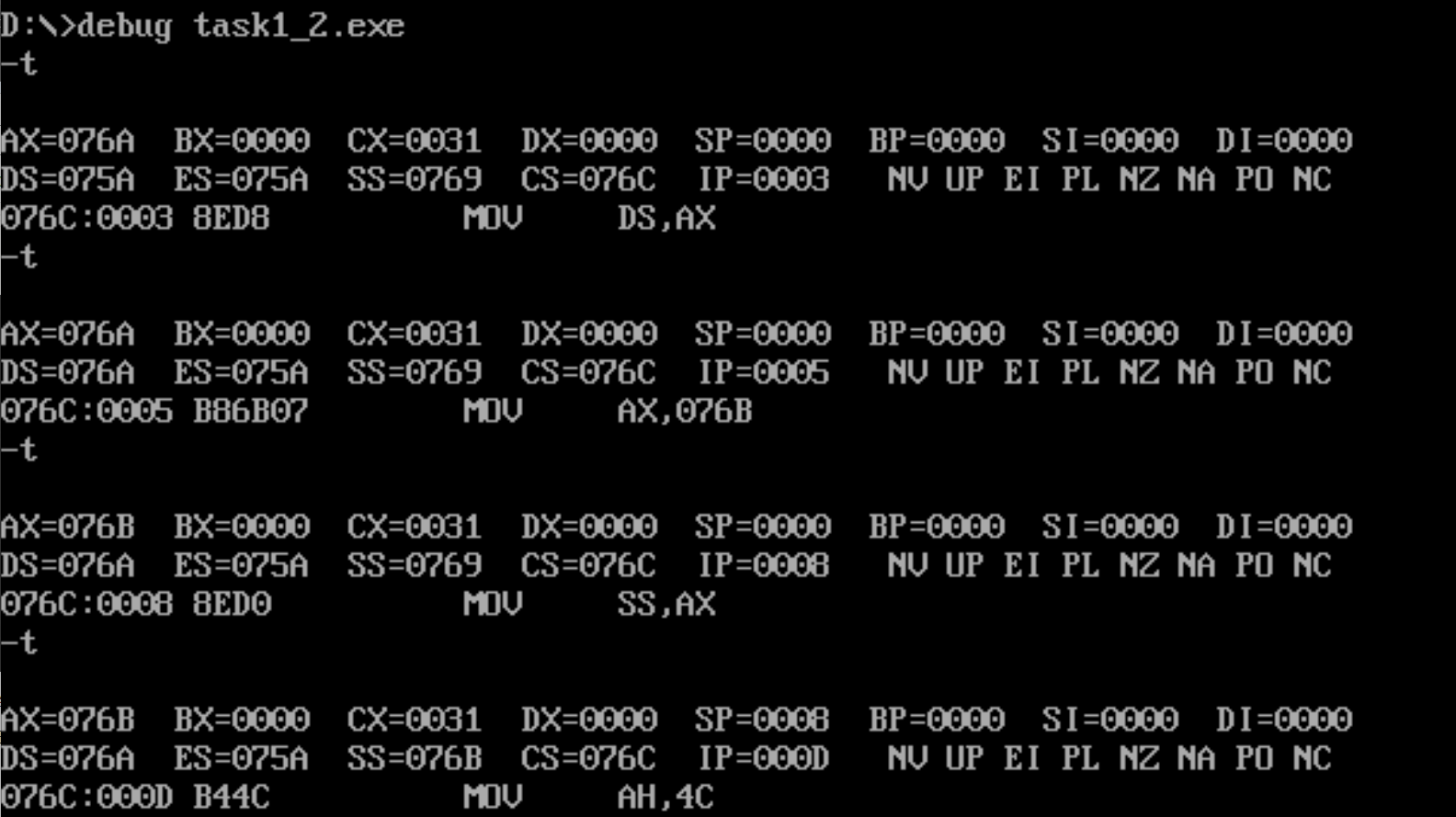
In debug, execute until the end of line17 and before line19. Record this time: register (DS) = 076A, register (SS) =076B, Register (CS) =076C. (memory is allocated at 16 bytes at a time.)
Assuming that the segment address of the code segment is X after the program is loaded, the segment address of the data segment is x-0002h, The segment address of stack is x-0001h.
Tasks 1-3:
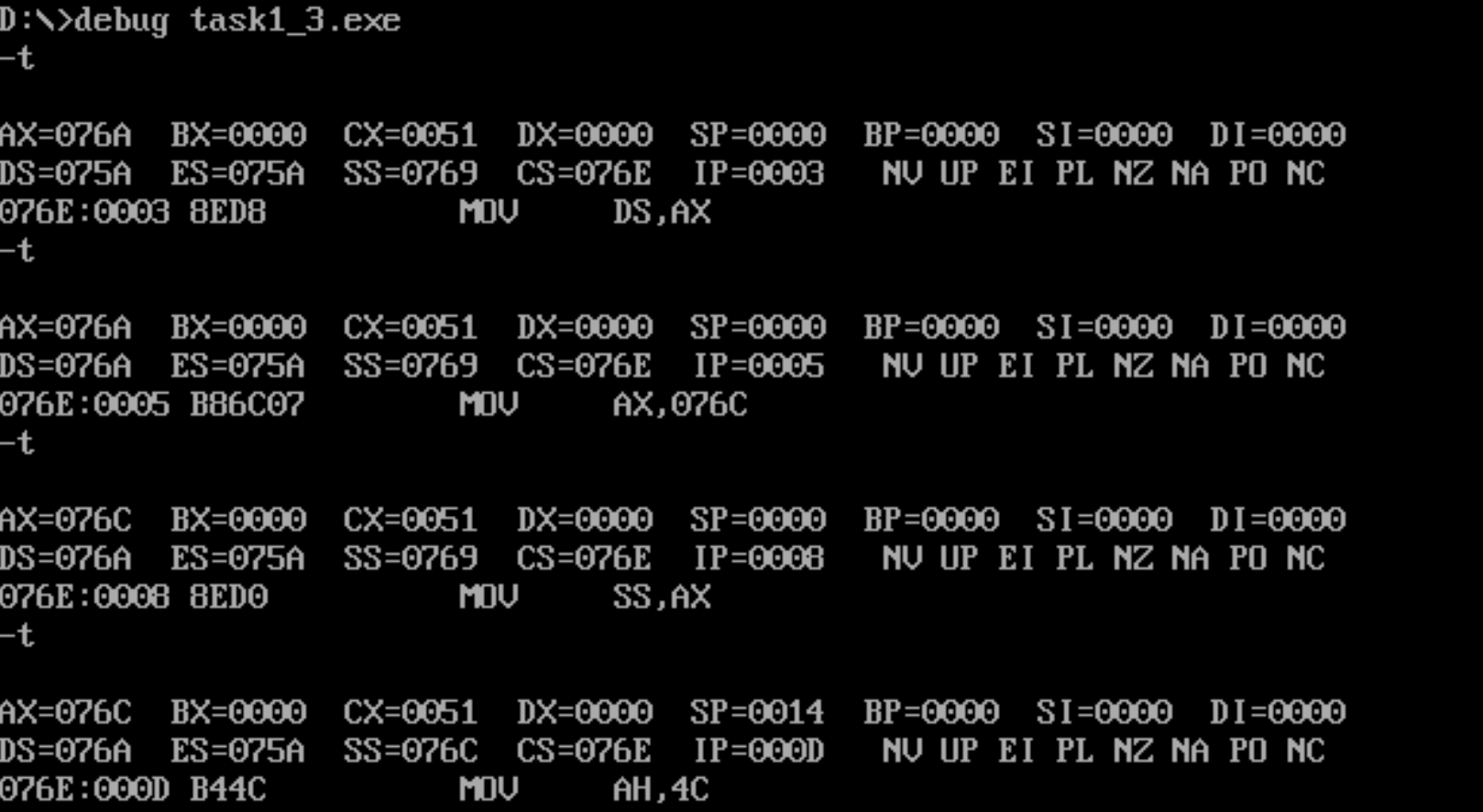
In debug, execute until the end of line17 and before line19. Record this time: register (DS) = 076A, register (SS) =076C, Register (CS) =076E. (the segment size is an integral multiple of 16 bytes, but 16 bytes is not enough, so 32 bytes are allocated.)
Assuming that the segment address of the code segment is X after the program is loaded, the segment address of the data segment is x-0004h, The segment address of stack is x-0002h.
Tasks 1-4:
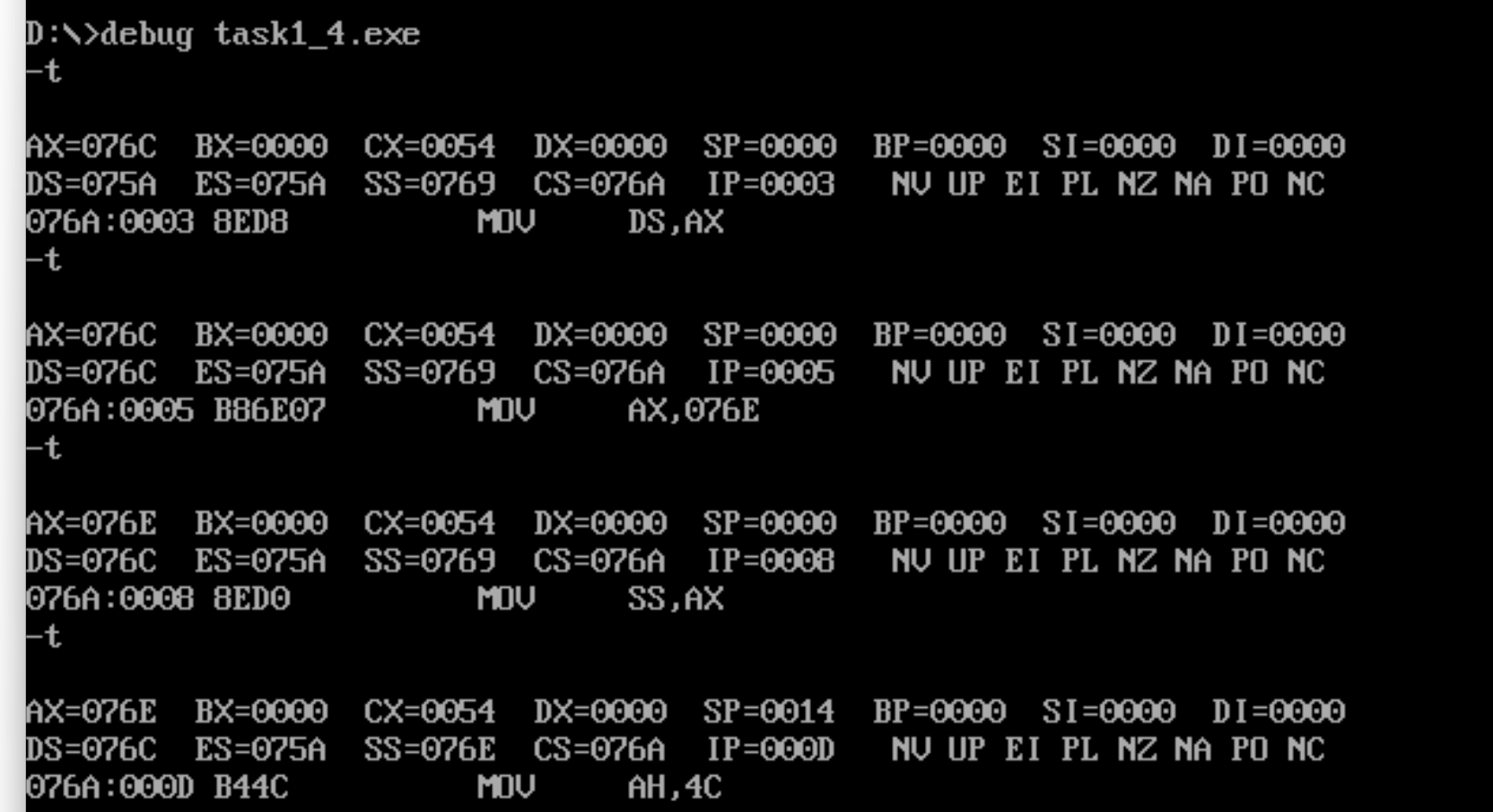
① in debug, execute until the end of line9 and before line11. Record this time: register (DS) = 076C, register (SS) =076E, register (CS) = O76A
② assuming that the segment address of the code segment is X after the program is loaded, the segment address of the data segment is X+0002h and the segment address of the stack is x+0004h
Tasks 1-5:
① round up according to the result of data modulus 16 as the memory space of the whole segment.
②task1_4 can operate normally. Because after using end start, the program will be executed from the place of start. If end start is not used, it will be executed from the beginning, and errors will occur except 4.
Experiment task 2:

assume cs:code
code segment
start:
mov ax,0b800h
mov ds,ax
mov bx,0f00h
mov cx,80
s:
mov ds:[bx],0403h
inc bx
inc bx
loop s
mov ah,4ch
int 21h
code ends
end start
Experiment task 3:
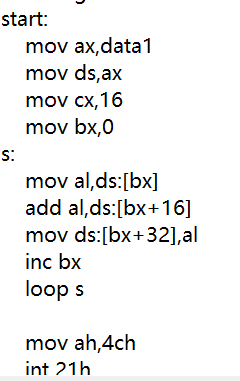
Data in data1 before addition:

Data in data2 before addition:

Data in data3 before addition:

Data in data1 after addition:

Data in data2 after addition:

Data in data3 after addition:

Disassembly screenshot:
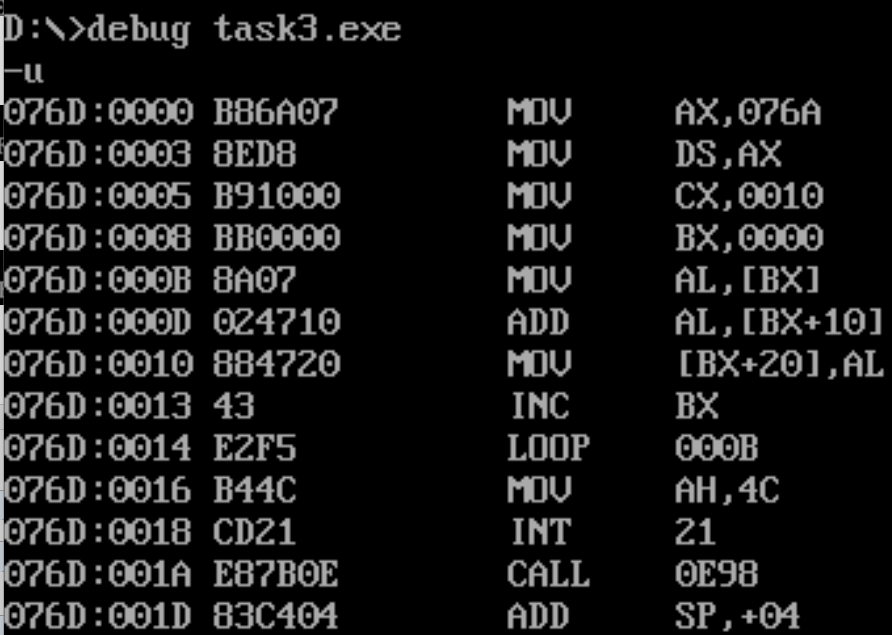
Experiment task 4:
assume cs:code data1 segment dw 2, 0, 4, 9, 2, 0, 1, 9 data1 ends data2 segment dw 8 dup(0) data2 ends stack segment db 16 dup(0) stack ends code segment start: mov ax,data1 mov ds,ax mov ax,stack mov ss,ax mov sp,16 mov bx,0 mov cx,8 s1: push ds:[bx] inc bx inc bx loop s1 mov bx,16 mov cx,8 s2: pop ds:[bx] inc bx inc bx loop s2 mov ah, 4ch int 21h code ends end start
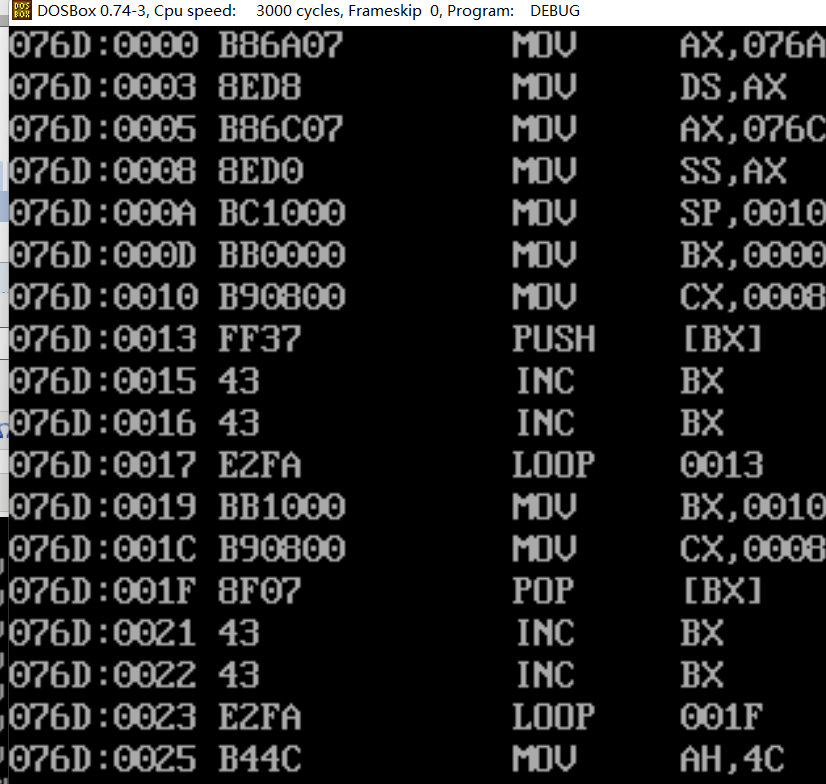

Experiment task 5:
assume cs:code, ds:data data segment db 'Nuist' db 2, 3, 4, 5, 6 data ends code segment start: mov ax, data mov ds, ax mov ax, 0b800H mov es, ax mov cx, 5 mov si, 0 mov di, 0f00h s: mov al, [si] and al, 0dfh mov es:[di], al mov al, [5+si] mov es:[di+1], al inc si add di, 2 loop s mov ah, 4ch int 21h code ends end start


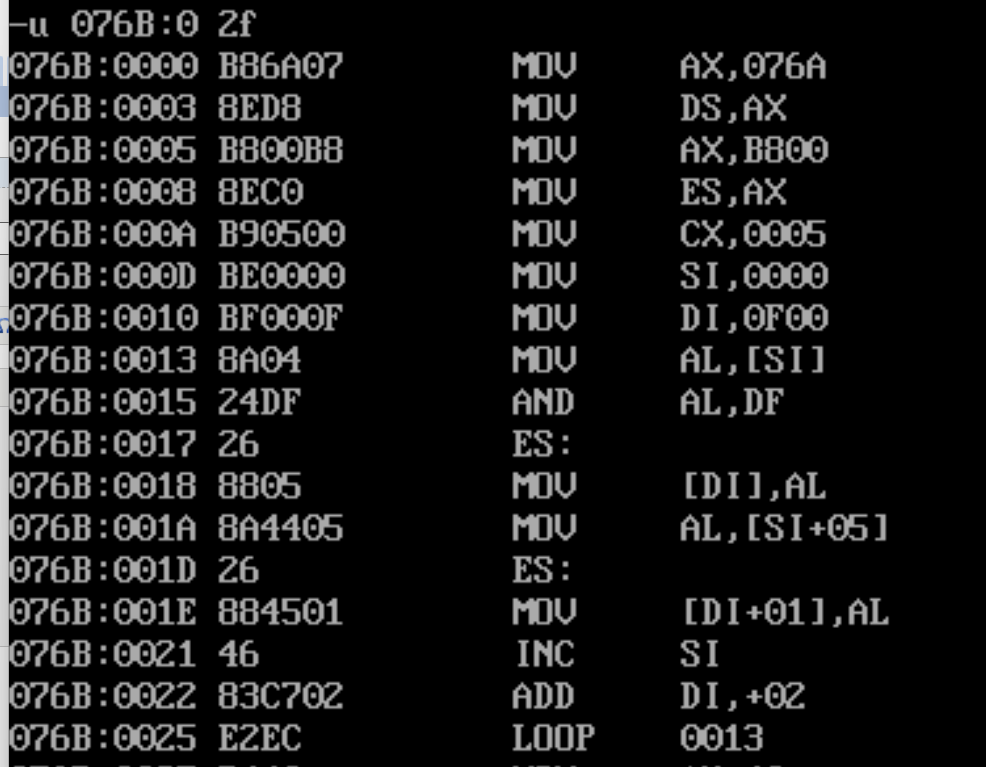
Function of line 19: sum the original data with 0dfh, that is, with 00001101111, so that the 6th bit becomes 0, that is, it is reduced by 32. So it is to unify the letters into uppercase.
The function of Line4 is to add different colors to letters.
Experiment task 6:
 \
\
assume cs:code, ds:data data segment db 'Pink Floyd ' db 'JOAN Baez ' db 'NEIL Young ' db 'Joan Lennon ' data ends code segment start: mov ax,data mov ds,ax mov cx,4 mov si,0 s: mov al,[si] or al,00100000B mov [si],al mov al,[si+16] or al,00100000B mov [si+16],al mov al,[si+32] or al,00100000B mov [si+32],al mov al,[si+48] or al,00100000B mov [si+48],al inc si loop s mov ah, 4ch int 21h code ends end start
Experiment task 7:
assume cs:code, ds:data, es:table
data segment
db '1975', '1976', '1977', '1978', '1979'
dw 16, 22, 382, 1356, 2390
dw 3, 7, 9, 13, 28
data ends
table segment
db 5 dup( 16 dup(' ') ) ;
table ends
code segment
start:
mov ax,data
mov ds,ax
mov ax,table
mov es,ax
mov bx,0
mov bp,0
mov si,20
mov cx,5
s: mov ax,ds:[bx]
mov es:[bp],ax
mov ax,ds:[bx+2]
mov es:[bp+2],ax
mov ax,ds:[si]
mov es:[bp+5],ax
mov word ptr es:[bp+7],0
mov ax,ds:[si+10]
mov es:[bp+10],ax
mov ax,ds:[si]
mov dl,ds:[si+10]
div dl
mov es:[bp+13],al
mov byte ptr es:[bp+14],0
add bx,4
add bp,16
add si,2
loop s
mov ah, 4ch
int 21h
code ends
end start
